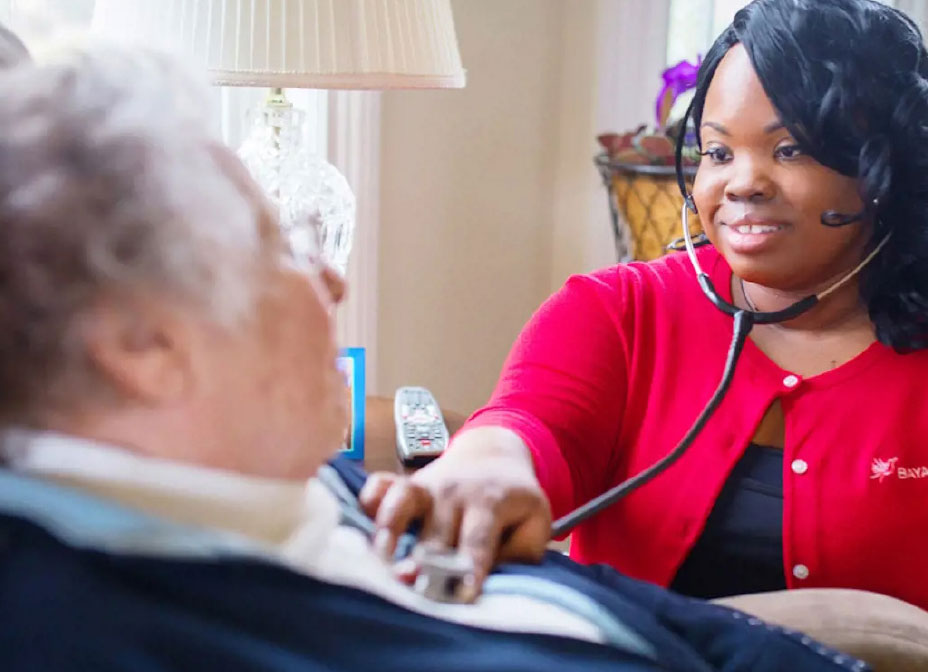

Within Moses Taylor Foundation’s Health Care Workforce strategy, priority is placed not only on building the pipeline for new professionals but also on retaining and upskilling the existing workforce. As part of this strategy, the Foundation recently partnered with BAYADA Home Health Care to support the participation of 15 nurses from Northeastern Pennsylvania in the organization’s Nurse Residency Program (NRP).
BAYADA’s NRP is the only paid, new-graduate residency program in home care to earn accreditation by the American Nurses Credentialing Center’s Commission on Accreditation. Designed to prepare nurses to apply their skills in real-life home care settings, the year-long program features virtual classroom sessions, high-fidelity simulation experiences, and in-home patient care guided by a preceptor.
As the project got underway, BAYADA staff reported that Moses Taylor Foundation’s support provided a meaningful incentive for the NEPA region to intensify its recruitment efforts, resulting in stronger-than-expected participation. Ultimately, the enrollment goal was exceeded by 20 percent, with 18 grant-funded participants enrolled. This was a notable achievement, given the historical challenges BAYADA has faced in recruiting nurses in the region.
Beyond exceeding the enrollment goal, the program staff observed additional positive outcomes among NRP participants. Of those enrolled, 100 percent retained their positions through the critical 90-day mark, and 94 percent successfully completed the classroom portion of their training. The 18 participants also reported increased confidence, competence, and connection to their profession.
In addition to the positive outcomes for participants, BAYADA administrators reported significant lessons learned. Adelina Garcia, BAYADA’s Director of Workforce Development, stated, “One lesson we would approach differently in [future] grant implementation is involving operational leaders earlier in the process. Initially, we hesitated to include them in tracking grant-related spending and enrollment, fearing it might interfere with their daily responsibilities. However, we discovered that they welcomed the added visibility into grant operations, and their strong relationships with service office leaders became a significant asset to our enterprise-level implementation team. For other grantees, we recommend prioritizing early stakeholder engagement and creating structured communication routines to maintain alignment and momentum throughout the project.”
While long-term metrics such as one-year retention are not yet available, BAYADA has committed to tracking participant outcomes over time to measure impact. Additionally, BAYADA is actively exploring ways to extend the program locally, as well as in the rest of their service area, to meet the rising demand for well-supported, practice-ready nurses.
“This grant reinforced our confidence in the value of structured support for new nurses as they transition into professional practice. It affirmed that intentional investment in onboarding and mentorship not only enhances nurse confidence and clinical preparedness but also plays a vital role in improving retention and supporting long-term workforce stability,” said Garcia.